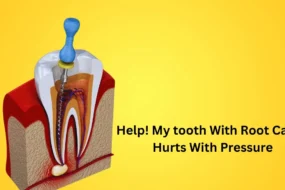
Do you share the worry that many others have while visiting the dentist? Even the most courageous people might have chills just thinking about sitting on that chair with dangerous materials and strange noises. However, what if I told you there was a technique to lessen your dread and anxiety? Welcome to the world of sedation dentistry, where anxious patients may now calm and even fall asleep during procedures. After a dental operation, picture waking up from hours of worry and suffering and feeling as though you’ve just taken a pleasant snooze. This ground-breaking method of dental care has completely changed how patients feel about the dentist and provides comfort for individuals who have been putting off essential procedures out of dread.
What Does a Dentist Use Sedation?
A sedation dentist uses sleep aids to make patients feel more at ease and relaxed during dental treatments. This kind of dentist has received extensive training in the management of different relaxing, including nitrous oxygen, and intravenous sedation, to guarantee that patients may endure required dental procedures without feeling anxious or uncomfortable.
People with dental phobias or anxieties can get the necessary oral treatment without the stress and anxiety that come with going to the dentist if there is a sedation dentist available.
Furthermore, people with particular demands or those in need of extensive treatments who may find it difficult to sit still for extended periods of time may find sedation dentistry to be very helpful.
Ultimately, a sedation dentist is essential in helping many individuals who have previously resisted getting treatment because of their anxieties or concerns by making dental visits more approachable and less intimidating. Patients can focus on their dental health without sacrificing comfort or well-being since these specialist experts utilize sedatives to create a tranquil and comfortable environment.
Types of Sedation Techniques
A vital component of many medical procedures, sedation techniques allow patients to feel comfortable and relaxed all over potentially difficult or annoying treatments.
- The various sedation methods are tailored to meet the specific demands of patients undergoing medical procedures and differ in efficiency and degree of invasiveness.
- Healthcare professionals have a variety of choices at their disposal to guarantee patient comfort and safety, ranging from mild nitrous oxide inhalation for little sedation to profound intravenous medication sedation that induces a sleeplike condition.
- Customized sedation strategies based on each patient’s unique needs and preferences have gained more attention in recent years. Technological advances and a growing knowledge of the influence of psychological variables on sedative effectiveness are the driving forces behind this change. Because of this, medical experts can now provide more customized sedative regimens that take into account individual aspects, including medication sensitivity, anxiety levels, and medical histories.
- Practitioners can optimize treatment outcomes and improve patient experiences by matching sedative procedures to each patient’s needs.
- Moreover, the medical profession has begun to embrace the incorporation of non-pharmacological therapies and mindfulness-based techniques into sedation procedures.
- Healthcare professionals are adopting more and more treatments like progressive muscle relaxation, guided imagery, and cognitive behavioural therapy into their sedation programs as a result of empirical data demonstrating these methods’ effectiveness in lowering anxiety and fostering calm.
- In addition to boosting the range of alternatives for treating patient discomfort, this holistic viewpoint recognizes the critical role that mental well-being plays in providing overall health care.
Benefits of Seeing a Sedation Dentist
In such a case, you may have less worry and anxiety during your dental operations by seeing a sedation dentist, which will make the entire process much more enjoyable. Because patients are more inclined to seek regular dental treatment when they feel at ease and comfortable, this can result in greater oral health overall.
- People with sensitive gag reflexes or low pain thresholds may also benefit from seeing a sedation dentist.
- These people can receive required dental procedures under sedation dentistry without suffering pain or worrying about gagging, which ultimately improves oral health results.
- Additionally, sedation dentistry may allow patients with hectic schedules to complete several procedures in one visit, saving them time and lessening their discomfort.
- In summary, seeing a sedation dentist may transform your dental experience and open the door to achieving ideal oral health.
Safety and Risks of Sedation Dentistry
- Patients who experience dental anxiety or phobia can benefit from sedation dentistry by being able to obtain essential treatment comfortably. However, there are risks and possible hazards related to sedation, just as with any medical operation.
- Even though most people have minimal side effects, it’s essential to be aware of the possibility of consequences, such as soothing allergy responses, breathing problems, and drug interactions.
- Correct patient evaluation and thorough checks for underlying medical issues are crucial to guaranteeing safety in sedation dentistry.
- To further reduce risks, the patient and the dentist must have open lines of communication about their medical history, allergies, and current medicines. Routine vital sign monitoring during sedation operations improves safety by quickly detecting abnormalities.
- In the final analysis, even though sedation dentistry offers many advantages to nervous patients needing dental care, providing safe and efficient care depends on being aware of the dangers involved and prioritising careful patient assessment.
- Dentistry professionals may reduce risks and guarantee a good experience for each patient by carefully considering safety procedures and doing a thorough patient evaluation before sedation.
Choosing the Right Sedation Dentist
Anyone who feels anxious or afraid when they visit the dentist has to make sure they choose the correct sedation dentist. Finding a dentist skilled in delivering anaesthesia and aware of your unique needs is just as vital as having a technical background. To ensure you have the comfort and relaxation you want during your dental operation, look for a practitioner who provides a range of sedation options, including IVs and nitrous gas.
Think about the dentist’s office’s ambience and attitude as well. A warm and relaxing setting might significantly improve your entire sedation dental experience. It’s also a good idea to address any worries or inquiries you may have in advance with the future dentist since open discussion builds confidence and reduces nervousness.
Lastly, investing the time to research and consult with several sedation dentists will enable you to make an educated choice about dental treatment that satisfies your mental and physical requirements.
Conclusion
In summary, a sedation dentist is essential to the dental care of patients who experience oral anxiety or phobias. Using various calming techniques, these knowledgeable dentists can guarantee that even the most anxious patients receive care without fear or suffering. Sedation procedures can help those with negative dental experiences tolerate and feel less nervous about their appointments. People afraid of the dentist must find a licensed dentist who can treat them securely and efficiently. A dentist can help people get past their worries and take care of their dental health.
She writes to dispel myths, encourage wellness practices, and promote good lifestyle choices. Dr. Lisa Robert writes to leave a lasting impression on her readers’ health and well-being.








